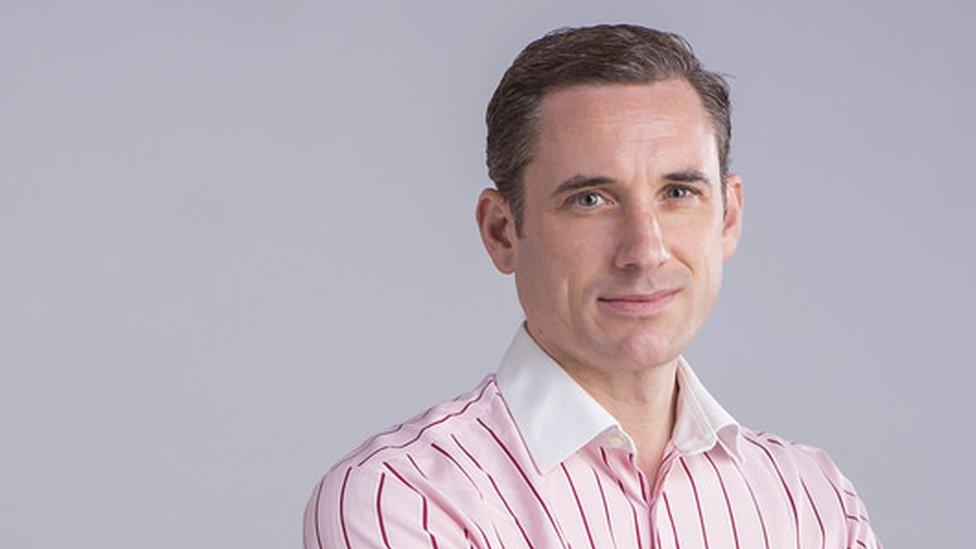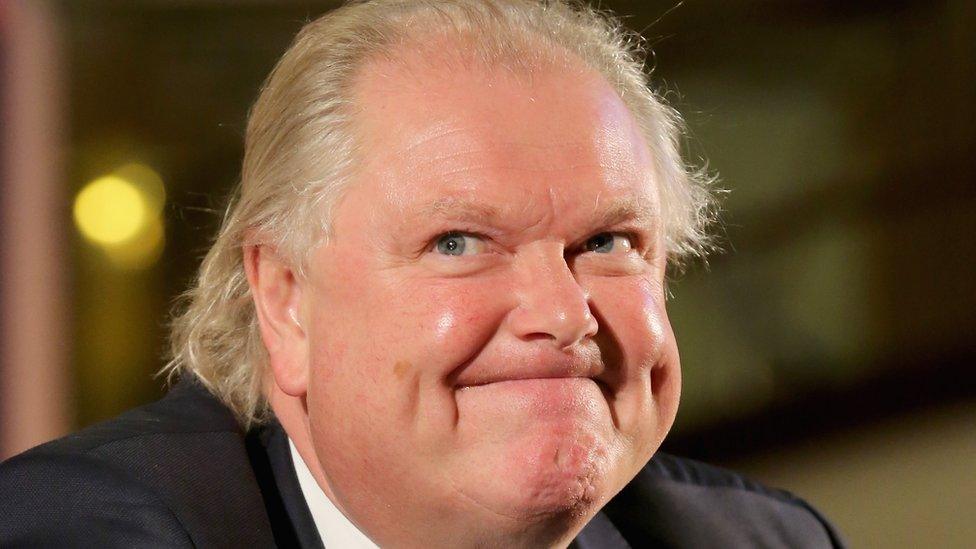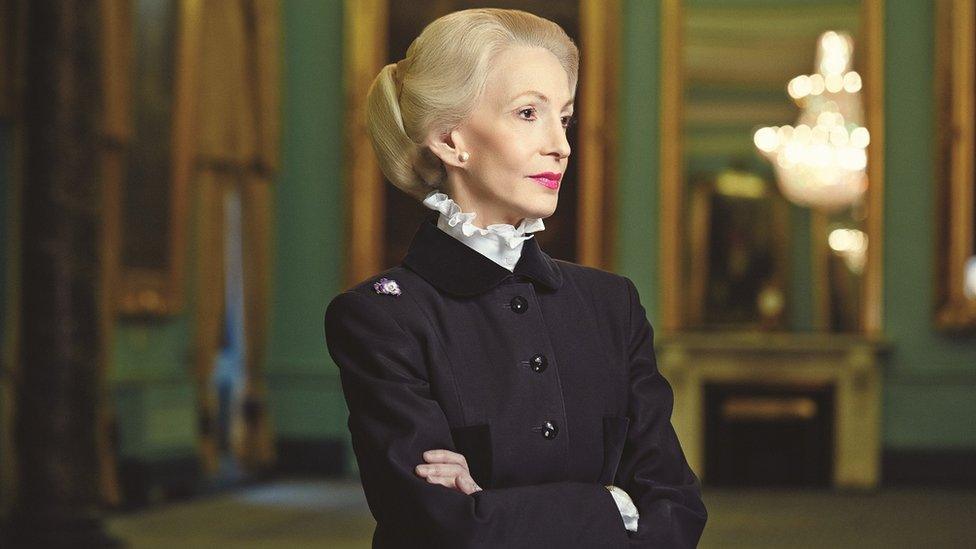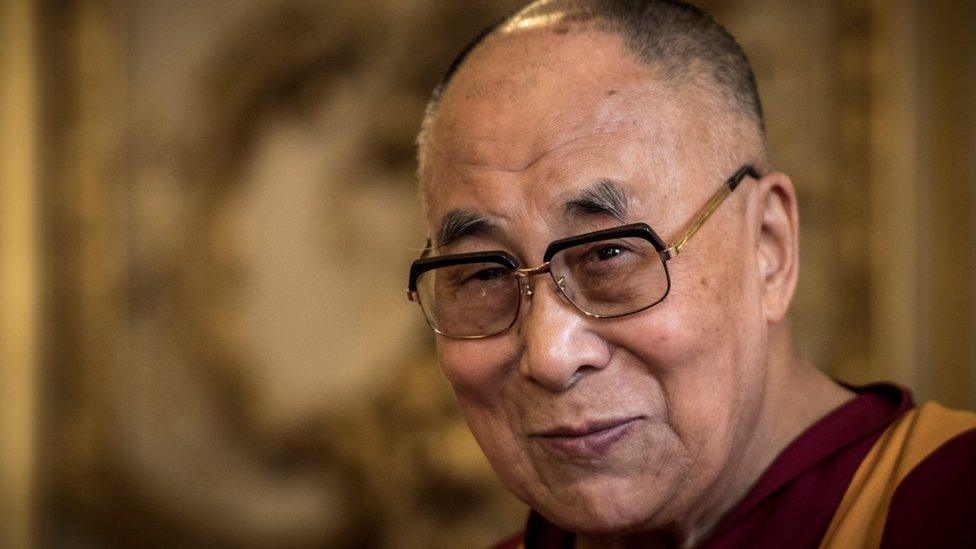Can you be taught to be more charismatic?
- Published

Elizabeth Hotson picked up some charisma tips
Whether or not I am charismatic was not a question I had ever asked myself until very recently.
"I want you to go on a charisma master class," said my editor one morning, out of the blue.
Immediately sensing my awkward bewilderment, he quickly explained that he didn't think I needed help.
Instead he had a job for me - he wanted me to explore whether it is possible to be taught to become more charismatic.
That's how I found myself trotting down to Mayfair in central London to see a psychologist called Richard Reid.
Nicknamed "Mr Charisma", he runs regular sessions teaching people how to be more charismatic.
Increasingly in demand, his clients range from businessmen and women who want to be better leaders, to grooms preparing for their wedding speeches, and people who simply want to be more successful with the opposite sex.
While I'm naturally chatty, enjoy public speaking and smile quite a bit, I wouldn't describe myself as charismatic. But as I walked into his office, what would Mr Reid think of me? And what exactly is charisma?

Among other things, Richard Reid says maintaining eye contact is key to being charismatic
"First impressions are that you have lots of positive attributes," he says. "You have a likeable energy, and I feel energetic being around you."
Better than I was expecting, but then came the inevitable "but".
"That energy needs to be tempered slightly, slowing down and pausing..."
Sensing that I was about to interrupt, Mr Reid adds: "And allow the other person to engage in the conversation.
"When people express themselves they feel good about themselves, and they're more likely to feel well disposed towards you."
Mr Reid goes on to talk about the importance of making eye contact, and asking people questions.
"By using open-ended questions you're showing far more interest in that person and you'll engender trust and enthusiasm."
He adds: "Charisma is about the [positive] feeling you engender in other people. A true sign of charisma is being able to connect with someone on a deeper level."
After spending an hour with Mr Reid I'm interested to hear what successful business leaders think about charisma, and whether they believe it can be taught.
So back at the office I start by calling Lord Digby Jones, a former UK minister for trade and investment.
"I'd say charisma is the confidence to constantly communicate and articulate a positive message," he says.

Lord Jones says he works very hard to try to make things look easy
"People are kind enough to say I'm a good communicator, that I speak in a language they understand.
"And I have a reputation for always answering a question, not ducking it. If you do that and articulate with consistency and fluidity, people listen."
But does Lord Jones think you can learn to be more charismatic?
"You can become better [at it]," he says. "People who make things look easy work harder, prepare more, and take nothing for granted.
"I can make a speech and people think I just stood up and did it, because I never use notes. They don't know that for an hour sometime that day I've quietly sat on my own thinking, 'How am I going to structure this, what does my audience look like?'"
Across town I meet Lady Barbara Judge, chairman of the Institute of Directors business organisation. A formidable woman, her unique style seems to be an amalgam of Tudor monarch and steely grande dame of commerce.
I'm rather taken aback when she says: "For me, charisma is about smiling, you need to smile a lot."

Lady Judge insists that she is less formidable than she can appear
"Charisma is about body language, making people feel included. It's not about you, it's about the people you're talking to and leading.
"If you can make people feel important, you can carry them with you."

More stories from the BBC's Business Brain series looking at quirky or unusual business topics from around the world:
Does selling up mean selling out?
'I turned my dad's erotic novel into a hit podcast'

Lady Judge adds that you have to believe in what you are saying. "If you want people to think you're strong, you have to look strong.
"I'm very thin-skinned, my feelings get hurt easily, and I'm kind of a marshmallow," she says. "You have to get over that: look strong, sound strong, act strong."
So does she believe you can teach charisma?
"I would like to think you can," she says, adding that as a younger women she received training in public speaking.
"If I can go from being terrible to reasonable by being taught, I'd like to think you can teach charisma."
However, not everyone agrees. One such naysayer is psychologist Prof Richard Wiseman, who like Mr Reid is an expert on charisma.
"I have never tried to train it [charisma], but my guess is that it would be very tricky," says Prof Wiseman.

Mr Reid says the Dalai Lama and Oprah Winfrey are both naturally charismatic
"Charisma depends on a unique mix of passion, an ability to transmit that passion to others, the ability to convey a message in a simple way that people get, etc.
"My guess is that it is very tricky to teach charisma without it sounding terrible."
While there are other such sceptics, Mr Reid continues to run charisma classes for a host of businesses including accountancy group Ernst & Young, and IT firms Sophos and Cap Gemini. He has also worked with the City of London Police and the UK Ministry of Defence.
"Generally it's people who are looking for a promotion, or looking to get to grips having stepped up in role. Or people who are running businesses and organisations, who are looking to influence and steer the people who work under them," he says.
When it comes to who Mr Reid thinks are some of the world's most charismatic people, he is quick to cite Oprah Winfrey and the Dalai Lama.
He says that Oprah has "the whole package", while the Dalai Lama is "humble, approachable and warm".